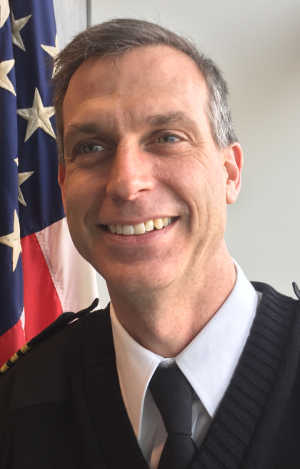- Greg Dill
- Posted On
Understanding Medicare: Two ways to get your Medicare

At a family reunion, my Aunt Abby and Uncle Glen got into a squabble over the best way to get their Medicare benefits.
Uncle Glen is an Original Medicare man, and has been for a decade or so. Aunt Abby prefers Medicare Advantage, which is similar to a health plan she had before enrolling in Medicare.
When they turned to me, asking me to referee and declare which form of Medicare is better, I gave them a big smile and answered, “Well, it depends.”
Original Medicare and Medicare Advantage have different benefits and costs that you should consider based on your personal needs. Medicare open enrollment season runs from Oct. 15 to Dec. 7, and it’s a good idea to know how the two types of Medicare work before you select one.
With Original Medicare, you can choose any doctor, hospital or other health care provider you want, as long as they accept Medicare. When you receive medical services or goods, Medicare pays the provider directly. About 70 percent of all people with Medicare have Original Medicare.
The other way to get your benefits is Medicare Advantage, which is a form of managed care, like an HMO or PPO. Medicare Advantage is provided by private insurance companies approved by Medicare. If you’re in Medicare Advantage, you generally must go to doctors and other providers in the company’s network.
If you go outside the network, you may have to pay more.
On the other hand, Medicare Advantage plans may offer some services – such as dental, hearing, vision, and prescription drug coverage – that Original Medicare doesn’t.
Most people with Original Medicare pay a monthly premium. If you’re in Medicare Advantage, you may have to pay an additional monthly premium to the private insurer that covers you.
With Original Medicare, you or your supplemental insurance must pay deductibles, co-pays, and coinsurance.
To cover these “gaps” in Medicare, some people buy supplemental insurance called Medigap. If you have a Medigap policy, Medicare pays its share of the covered costs, and then your Medigap policy pays its share.
Original Medicare doesn’t cover prescription drugs. If you want drug coverage, you can buy a separate Medicare Part D plan. Such plans are sold through private companies approved by Medicare. You have to pay an additional monthly premium for Part D.
Medicare Advantage companies must cover all of the services that Original Medicare covers. (However, Original Medicare covers hospice care, some new Medicare benefits, and some costs for clinical research studies, even if you’re in a Medicare Advantage plan.) In all types of Medicare Advantage plans, you’re always covered for emergency and urgent care.
You can join a Medicare Advantage plan even if you have a pre‑existing condition -- except for End-Stage Renal Disease. People with ESRD usually are covered through Original Medicare.
Keep in mind that Medicare Advantage plans can charge different out-of-pocket amounts and have different rules for how you get service.
For example, you may need a referral to see a specialist. And you may need to stay in the plan’s provider network, unless you’re willing to pay more to go outside the network.
You should always check with the plan before you get a service to find out whether it’s covered and what your costs may be. If the plan decides to stop participating in Medicare, you’ll have to join another Medicare health plan or return to Original Medicare.
How can you decide whether Original Medicare or Medicare Advantage is better for you?
There’s a good comparison of Original Medicare and Medicare Advantage in the “Medicare & You” handbook. “Medicare & You” is mailed to all Medicare beneficiaries every fall. You can also find it online, at https://www.medicare.gov/pubs/pdf/10050-Medicare-and-You.pdf.
If you have any questions, call Medicare’s toll-free number, 1-800-MEDICARE.
Greg Dill is Medicare’s regional administrator for Arizona, California, Nevada, Hawaii and the Pacific Territories. You can always get answers to your Medicare questions by calling 1-800-MEDICARE (1-800-633-4227).







